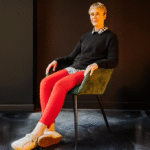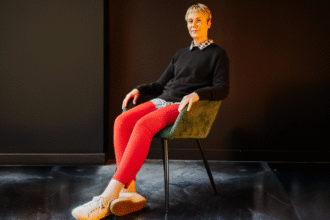As the year of 2024 draws to a close and festive celebrations like Christmas approach, marketers are refining their strategies to boost tourists’ spending. Recent research from the Chinese University of Hong Kong (CUHK) Business School may offer valuable insights to inform these efforts, revealing a surprising link between romance-themed storytelling and increased likelihood of making impulsive purchases.
Key findings:
- Tourists exposed to romance-themed storytelling are more prone to impulsive buying compared to those in non-romantic settings.
- This effect is driven by a reduced sense of personal control, stemming from the internalised belief that “romance is uncontrollable.”
- Colour plays a crucial role: blue backgrounds enhance the impulsive buying tendency in romantic settings, while red backgrounds mitigate it.
The study, led by Professor Lisa Wan Chun-ying of the School of Hotel and Tourism Management,highlights how romance-themed storytelling evokes feelings of spontaneity, contributing to tourists’ reduced self-control, which in turn encourages impulsive purchasing. These insights present new opportunities for tourism marketers to enhance visitor experiences and boost consumer spending.
Titled “Harnessing romance: The effect of exposure to romance-themed attractions on tourists’ impulsive buying,” the study involved a series of experiments with 820 participants. In the romantic condition, participants were shown images of a medieval bridge with a lifelong love story, while those in the non-romantic condition were told a story about friendship related to the bridge. The results revealed that participants exposed to romance-themed attractions were more likely to make impulsive purchases compared to those under the non-romantic condition.
Another intriguing finding is the role of colour in shaping consumer responses. Blue backgrounds, commonly associated with calmness, enhanced the impulsive buying effect under romantic themes, while red—a colour linked to caution—mitigated this tendency.
From a practical standpoint, businesses and attractions can apply these insights to encourage purchases while managing the risks associated with impulsive buying. For example, the use of red visual cues may help reduce the likelihood of excessive or unwanted purchases by tourists.
The findings offer more than just a sales boost for tourism operators. By using romance-themed storytelling and understanding how colour influences consumer behaviour, attractions can create more engaging, memorable experiences that not only enhance visitor satisfaction but also encourage repeated visits.
The original article was published on the website of CUHK Business School:
https://cbk.bschool.cuhk.edu.hk/love-is-in-the-air-so-are-your-credit-cards/
Reference:
Xiaoyan Luo, Lisa C. Wan, and Xing Stella Liu (2023), “Harnessing romance: The effect of exposure to romance-themed attractions on tourists’ impulsive buying,” Tourism Management, 96, 104717.
About CUHK
Founded in 1963, The Chinese University of Hong Kong (CUHK) is a forward-looking comprehensive research university with a global vision and a mission to combine tradition with modernity, and to bring together China and the West. CUHK teachers and students hail from all around the world. CUHK graduates are connected worldwide through an extensive alumni network.
CUHK’s mission is to assist in the preservation, creation, application and dissemination of knowledge by teaching, research and public service in a comprehensive range of disciplines, thereby serving the needs and enhancing the well-being of the citizens of Hong Kong, China as a whole, and the wider world community.
About CUHK Business School
CUHK Business School comprises two schools – Accountancy, and Hotel and Tourism Management – and four departments: Decisions, Operations and Technology, Finance, Management, and Marketing. Established in Hong Kong in 1963, it was the first business school to offer BBA, MBA, and Executive MBA programmes in Asia. Today, CUHK Business School offers 10 undergraduate programmes and 22 graduate programmes, including MBA, EMBA, MAcc, MSc, MPhil, DBA, and PhD. The school currently has more than 5,000 undergraduate and postgraduate students from more than 30 countries and regions.
In the Financial Times Executive MBA Ranking 2024, CUHK’s EMBA was ranked 22nd in the world. At more than 45,000, CUHK Business School has the largest number of business alumni among universities and business schools in Hong Kong, many of whom are business leaders.
Legal Disclaimer: The Editor provides this news content "as is," without any warranty of any kind. We disclaim all responsibility and liability for the accuracy, content, images, videos, licenses, completeness, legality, or reliability of the information contained in this article. For any complaints or copyright concerns regarding this article, please contact the author mentioned above.

















